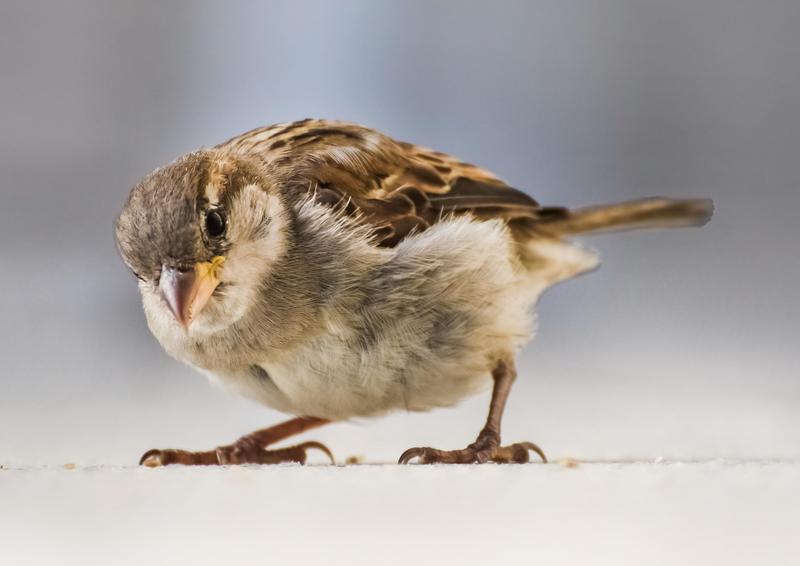Deep Incarnation
Posted on February 1, 2022, by Joy Jensen SL

Standing in the creek water of Coleman’s run, Susan Classen, during her videotaped Assembly 2021 presentation, reminded us that Loretto land is millions of years old. Loretto land has evolved from the Mississippian Era, and so have the sparrows who frequent my bird feeder. We want to preserve Loretto land, a good thing, but do we think of the wildlife on Loretto land that we are also preserving?
Thinking of these sparrows reminds me of my favorite ecotheologian, Denis Edwards, who died in 2019. These sparrows make me think of Jesus, who at the incarnation became flesh to live among us. Edwards wrote a book, “Deep In- carnation,” in which he introduced me to Niels Henrik Gregersen, a Danish theologian who coined the term “deep incarnation” to show the radical meaning of the incarnation. Gregersen proposes that “the incarnation of God in Christ can be understood as a radical or ‘deep’ incarnation, that is, an incarnation into the very tissue of biological existence, and system of nature.” As Edwards wrote, the cross is God’s identification with creatures in the Earth’s evolutionary emergence, in God’s redemptive suffering with God’s creatures, including the sparrows at my bird feeder.
Edwards goes on to write in “Deep Incarnation” that Jesus became flesh, bone of our bone, and flesh of our flesh, took on the DNA of Mary his mother, and was immersed in the evolutionary emergence of our Earth.
As I think of the wildlife on our Loretto land, I think of what Gregersen and Edwards wrote about God suffering with God’s creatures. I remember the red-tailed juvenile hawk that died on our property near Baden Pond. I remember crying as I stroked its feathers and felt its death. Did God not cry at the suffering of one of God’s creatures? Does God not suffer the costs of evolution when the coyote runs down a kid goat?
During the Christmas season as we sing carols about Jesus lying in a manger and angels singing at his birth we rejoice because the Word became flesh, our flesh, the DNA of his mother, to live among us. We rejoice, O Holy Night. Does not creation rejoice with us? The Word became one of us, to bring about the fulfillment of all creation. I think even the red-tailed hawk and the black Angus rejoice at the deep incarnation of the Word who became flesh for us and for my sparrows.
Sources:
Denis Edwards, “Deep Incarnation,” p. xvii
Niels Henrik Gregersen, “The Cross of Christ in an Evolutionary World,” Dialog: A Journal of Theology 40 (2001), p. 205
